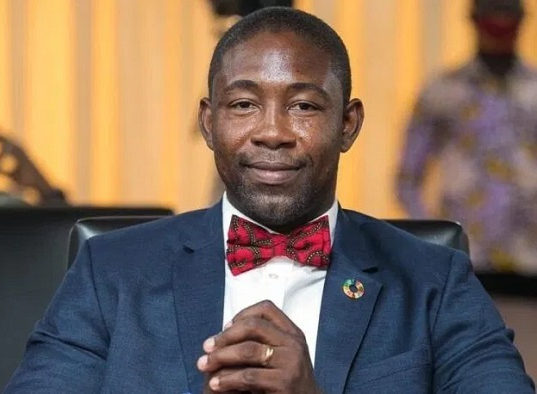The World Bank has provided the National Health Insurance Scheme (NHIS) with $27.7 million concessionary funding to improve services, especially to the poor and vulnerable.
The funding will enable the scheme to increase its population coverage, register more poor and vulnerable people, and ensure the prompt processing and payment of claims for primary health care (PHC) providers.
The PHCs comprise the community-based health planning services (CHPS) compounds, health centres and maternity homes under the Primary Health Care Improvement.
Dubbed Programme for Results (PforR), the amount was provided by the World Bank with some support from the other donors under the umbrella funding group called Global Financing Facility.
A health economist with the World Bank, Enoch Oti Agyekum, confirmed the funding to the Daily Graphic last Thursday on the sidelines of a training programme for claims management in Accra.
He indicated that although increasing the number of people, especially the poor and vulnerable, was good, the number of people who got the service was also of utmost importance.
Review
Mr Agyekum stated that available data from the public expenditure review conducted by the World Bank indicated that over 80 per cent of the National Health Insurance Authority (NHIA) facilities were made up of health centres, maternity homes and CHPS compounds, but constituted 17 per cent when it came to claims to those facilities.
Mr Agyekum said at a training programme that it had been realised at the third-tier level — the primary health care — that the facilities were the least efficient in processing claims and that “over the last three years, we see that efficiency going down”.
The health economist said the facilities were disadvantaged because a lot of the people who resorted to those centres were people who could not afford the co-payment if the facilities wanted to charge because they were the very poor in the communities.
Mr Agyekum said it was believed that by improving claims payment, it would establish trust between the NHIS and the facilities at all levels of care.
“This is important because the NHIS is at the forefront of delivering a very important social contract between the government and the people,” he explained.
The health economist said he knew that the NHIS had the capacity to deliver more and better with the support of the Ministry of Finance.
Indigent population
The Ag. Corporate Affairs Director of the NHIS, Oswald Essuah-Mensah, in an interview, said under the facility, the NHIA in partnership with the Ministry of Health, the Ghana Health Service and the Health Facility Regulatory Authority (HeFRA) was to improve on relevant aspects of accreditation of healthcare providers.
The collaboration would also lead to improvements in the monitoring and financing of primary healthcare services.
The Corporate Affairs Director added that the NHIA and the Social Protection Directorate of the Ministry of Gender, Children and Social Protection (MoGCSP) would continue to collaborate to boost enrolment of indigent populations, such as the disabled, orphans, widows, women and children in the scheme.
New vision
Mr Essuah-Mensah added that under what is described as the “New NHIS leadership’s ultimate goal”, the team was building a resilient health insurance scheme that responded to the needs of all by providing access to quality and affordable healthcare services on a sustainable basis.
“The Executive Management’s strategy towards achieving Universal Health Coverage (UHC) is the adoption of ‘pro-poor pathway’ interventions fastened to the legal framework that every Ghanaian should register with the NHIS,” he added.
To that end, he said, the Chief Executive, Dr Bernard Okoe Boye, his deputies and some directors had completed a tour of all 16 regions to connect with staff and the citizenry and also discussed how to strengthen the NHIS and the role it played as a vehicle for Ghana to achieve UHC.
Latest Stories
-
Paris 2024: Opening ceremony showcases grandiose celebration of French culture and diversity
3 hours -
How decline of Indian vultures led to 500,000 human deaths
4 hours -
Paris 2024: Ghana rocks ‘fabulous fugu’ at olympics opening ceremony
4 hours -
Trust Hospital faces financial strain with rising debt levels – Auditor-General’s report
5 hours -
Electrochem lease: Allocate portions of land to Songor people – Resident demand
5 hours -
82 widows receive financial aid from Chayil Foundation
5 hours -
The silent struggles: Female journalists grapple with Ghana’s high cost of living
5 hours -
BoG yet to make any payment to Service Ghana Auto Group
5 hours -
‘Crushed Young’: The Multimedia Group, JL Properties surprise accident victim’s family with fully-furnished apartment
6 hours -
Asante Kotoko needs structure that would outlive any administration – Opoku Nti
6 hours -
JoyNews exposé on Customs officials demanding bribes airs on July 29
7 hours -
JoyNews Impact Maker Awardee ships first consignment of honey from Kwahu Afram Plains
8 hours -
Joint committee under fire over report on salt mining lease granted Electrochem
8 hours -
Life Lounge with Edem Knight-Tay: Don’t be beaten the third time
8 hours -
Pro-NPP group launched to help ‘Break the 8’
9 hours

